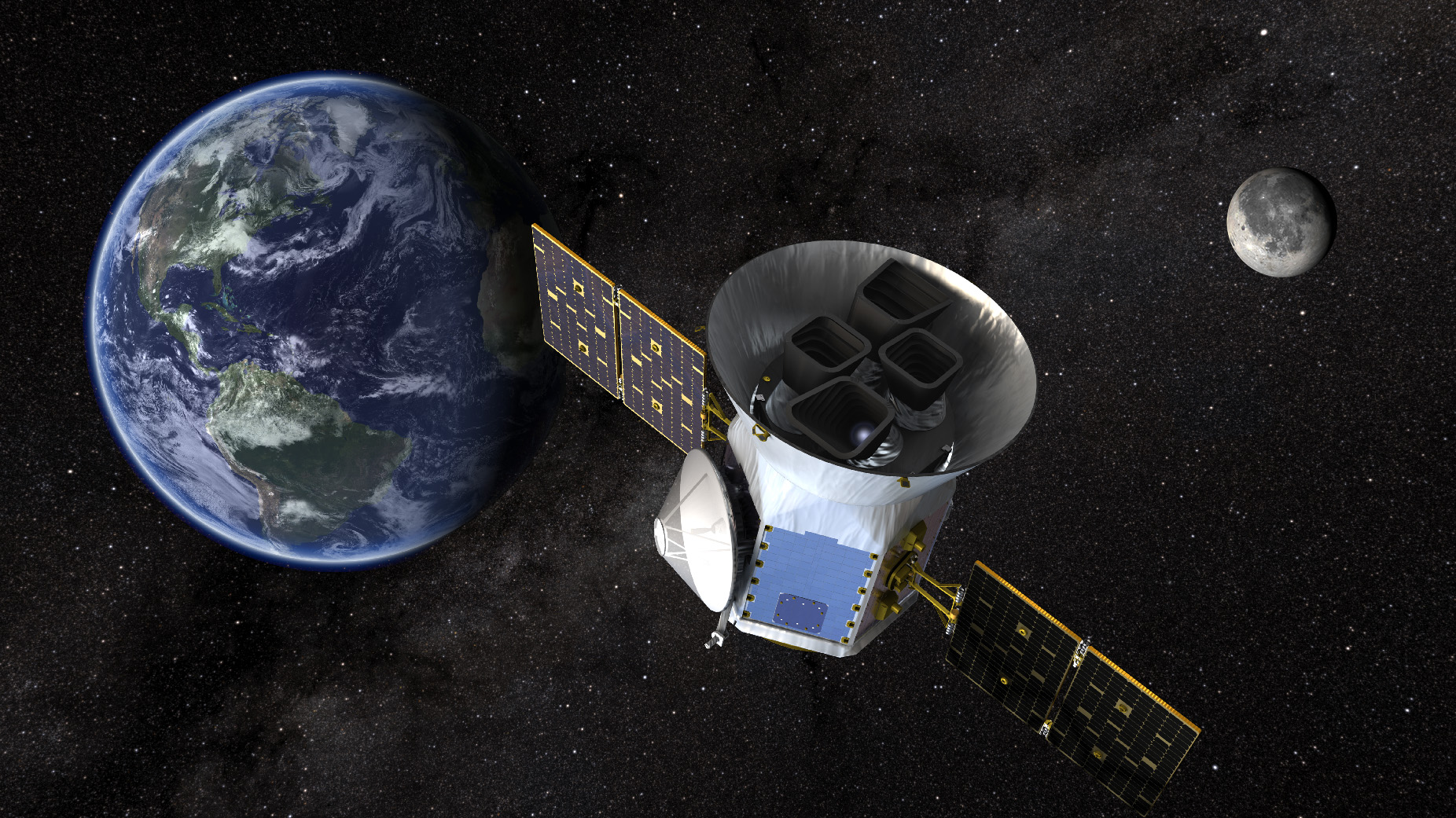
NASA's planet-hunting Transiting Exoplanet Survey Satellite (TESS) is back in action, searching for worlds beyond the solar system's limits.
TESS came out of "safe mode" on May 3, resuming its search for worlds in other star systems known as extrasolar planets (or exoplanets) as they cross or "transit" the face of their parent stars, causing a tiny dip in starlight. The satellite had gone into safe mode when halted operations on April 23, just five days after it celebrated the sixth anniversary of its launch on April 18, 2018.
The TESS operating team has determined that the safe mode was triggered when momentum started building in the spacecraft's reaction wheels, which are responsible for properly orienting TESS as it makes its observations.
Related: NASA's TESS exoplanet hunter may have spotted its 1st rogue planet
This shutdown was related to a separate safe mode event that shut down the exoplanet hunter earlier last month. TESS went offline on April 8, resuming operations after that glitch on April 17 — only to go back into safe mode six days later.
NASA said that the second shutdown happened because when the April 8 safe mode event was resolved, the propulsion system of TESS had failed to successfully re-pressurize. This system is responsible for offloading momentum from the reaction wheels.
TESS was returned to full capacity when its operations team at the Massachusetts Institute of Technology (MIT) depressurized its propulsion system. Yet, despite TESS returning to full operation, the cause of the spacecraft's first safe mode event on April 8 still remains a mystery under investigation by NASA and MIT experts.
TESS completed its primary mission in July 2020 and ended its first extended mission in September 2022. The exoplanet hunter is currently in its second extended mission period.
The spacecraft continues to make waves, recently discovering its first rogue exoplanet, a world that wanders the solar system unassociated with a host star.
It did this by measuring the tiny brightening of a distant background star that indicated a disassociated exoplanet was passing in front of it, warping space in accordance with Einstein's theory of general relativity.
On April 30, despite its recent troubles, NASA put out a call to the wider scientific community for input on investigations that should be prioritized in TESS's third and fourth extended mission periods.







